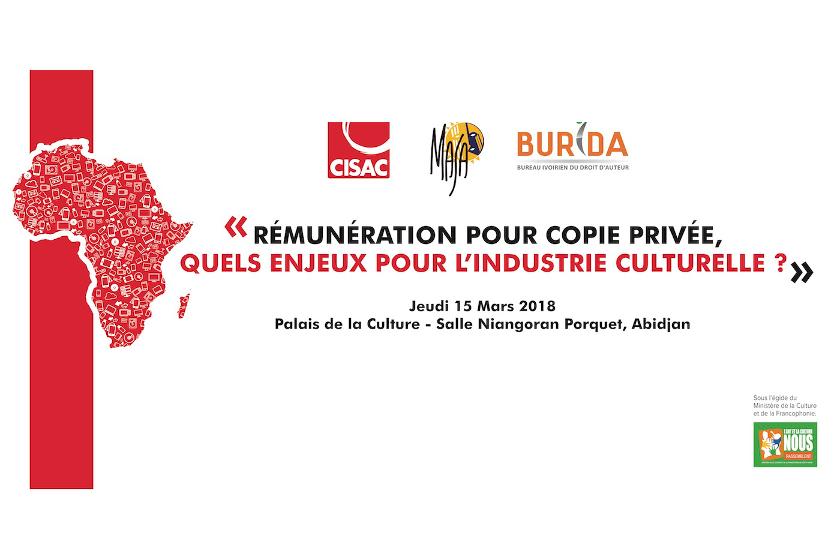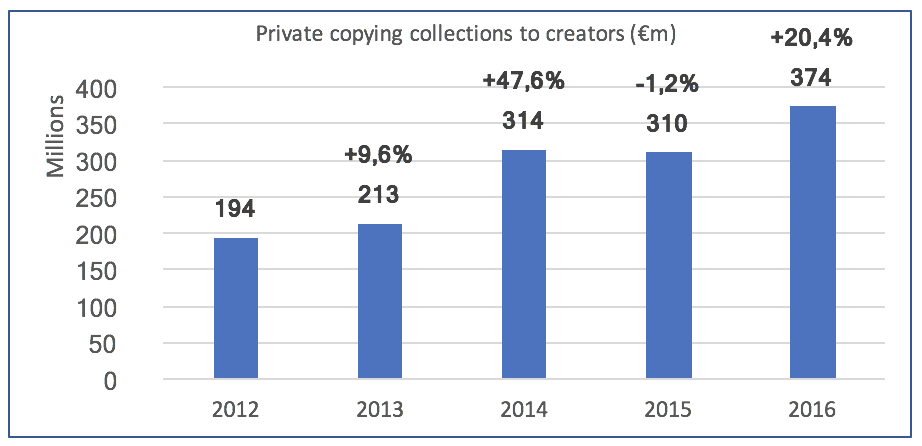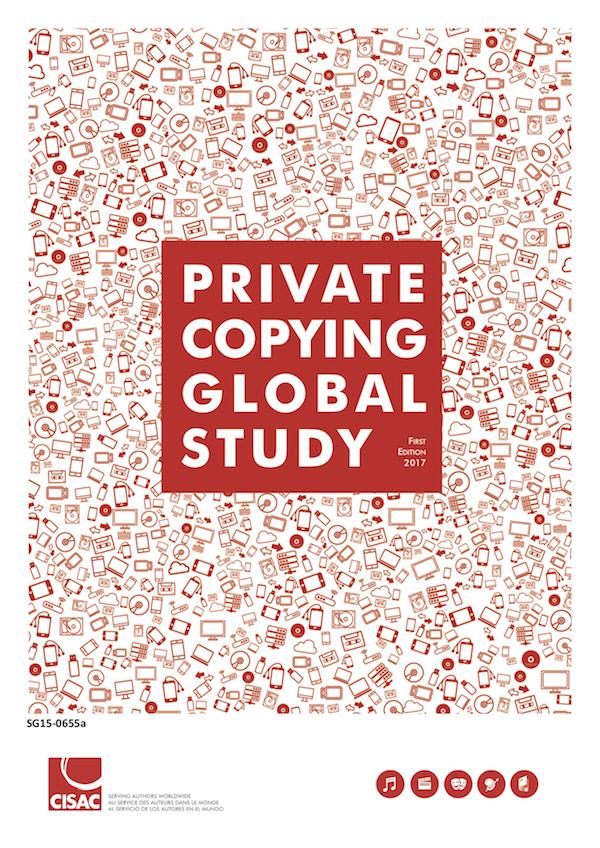African creators' unexploited rights: CISAC and BURIDA team up at the MASA Festival in Ivory Coast

Paris, 1 March 2018 – CISAC is teaming up with BURIDA, its member society in Ivory Coast, at the MASA Festival, www.masa.ci, the largest regional cultural event held in Abidjan, for a roundtable discussion which will address how to increase African creators’ revenues thanks to the private copying remuneration.
The roundtable, bringing together creative professionals, authors’ society representatives and government officials, will discuss ways of creating more income opportunities for creators in Africa based on private copying legislation. At the event, on Thursday, 15 March 2018 at the Palais de la Culture, Abidjan, BURIDA, ONDA, the Algerian authors’ society, and BBDA, the authors’ society of Burkina Faso, will join with CISAC and with the support of the Ministry of Culture and Francophonie of Ivory Coast
The event marks the first time the new CISAC Private Copying Global Study published in October 2017, will be presented to the public. The roundtable will examine the problem of enforcing legislation on private copying in Ivory Coast in order to effectively manage remuneration.
Irène Vieira, Director General of BURIDA, says:
“It is unfair for the law to allow reproduction of copyright creative works for private use without providing a fair remuneration for their rightholders. It is also quite wrong for the law to provide for such compensation but not to give rightholders the tools to secure the actual payment of that remuneration.”
Data from the study show that the collections generated by private copying represent 12% of the total revenues of the African societies, and even over 50% in some countries like Burkina Faso. These figures illustrate the revenue growth potential for African creators if an efficient private copying system is in place.
When properly enforced, private copying levies represent an important revenue stream for creators. These levies are applied to blank media and equipment allowing reproduction and storage of copyright creative works, and are collected by authors’ societies, sometimes with the support of the local government or customs authorities.
In 2016, the CISAC member societies’ global collections from private copying totalled €374 million (US$414 million), almost double the total collected in 2012. This source of income is particularly important in developing countries, where creators are often faced with an inadequate copyright protection environment and where physical formats are still dominant.
The panellists will discuss the importance of private copying as a key source of income for creators and how these levies can contribute to the development of collective management and the creative industries in the region, and particularly in Ivory Coast.
The potential exists to achieve a significant increase in payments to rightholders by reducing the differences between countries’ legal frameworks, improving the enforcement of existing laws and strengthening the effectiveness of collection mechanisms.
Angélique Kidjo, singer-songwriter and CISAC Vice-President, says:
“Without legislation on private copying, creators receive no compensation when their works are copied onto various media, duplicated on hard drives or transferred to the cloud. We must fight for this system to be adopted in all countries. It is a question of fairness.”

Please contact us for any information and to register for the MASA conference on private copying.

